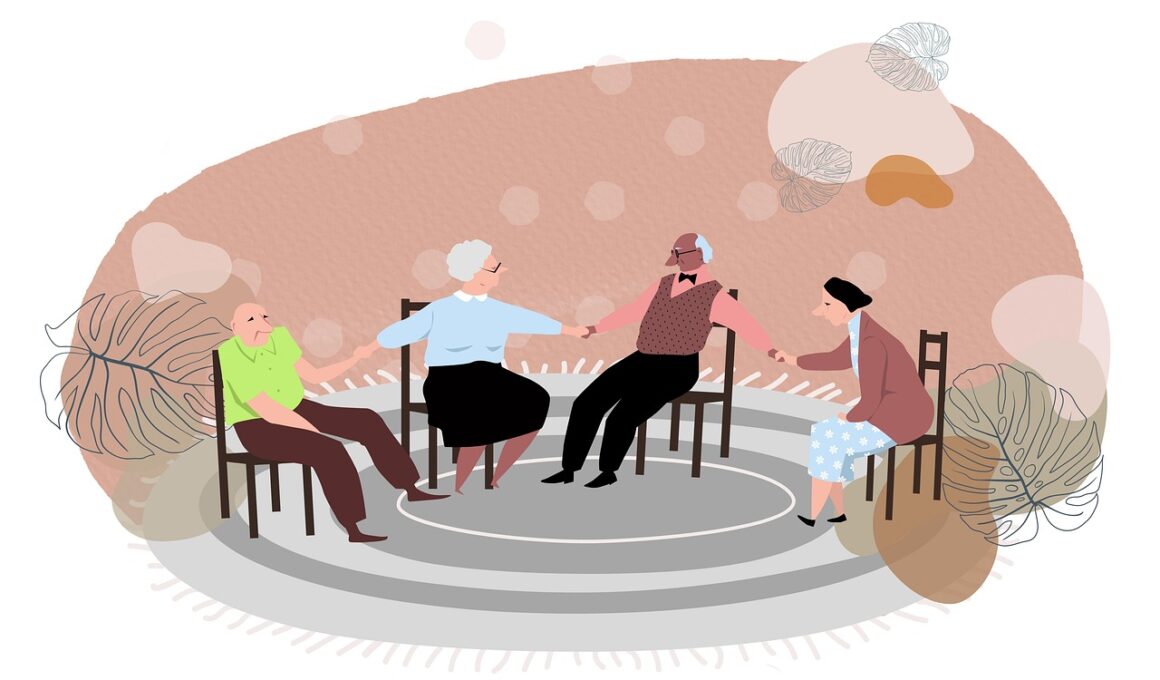The Importance of Professional Facilitation in Eating Disorder Support Groups
Eating disorder support groups serve as crucial lifelines for individuals facing the challenging realities of their conditions. Professional facilitation plays an essential role in fostering a safe and supportive environment where members can openly share their experiences. The presence of trained facilitators ensures that discussions remain focused, constructive, and respectful. They help to maintain a balance in group dynamics, encouraging equal participation and preventing dominant voices from overshadowing quieter members. With effective guidance, participants can explore sensitive topics related to their disorders without fear of judgment, which is vital for positive mental health outcomes. This supportive space promotes empathy and understanding among group members, strengthening their connection. Facilitators also possess the skills to recognize emotional distress and intervene appropriately, providing necessary support during difficult moments. They can introduce activities and discussions that promote healing and growth, which can significantly influence the overall recovery process. Educational components introduced by professionals further enrich the experience, offering members valuable insights into their conditions. Overall, the expertise of facilitators enhances the effectiveness of support groups, providing a foundation for recovery and resilience.
One of the most significant benefits of having professionals facilitate support groups is their ability to implement structured programming. Structure creates a predictable environment that enables participants to feel secure and encouraged to share their experiences. A clear framework allows for well-defined discussions, ensuring that all topics related to eating disorders are addressed comprehensively. This approach not only empowers individuals but also fosters a sense of accountability. Participants are more likely to stay committed to their recovery when guided by professionals who can mitigate potential challenges and discuss sensitive issues directly. Professionals can also incorporate therapeutic techniques to enhance participants’ coping strategies. They might introduce mindfulness practices or grounding exercises during sessions, equipping members with the tools to manage emotional triggers outside of group settings. Furthermore, facilitators often facilitate workshops, bringing in guest speakers or experts in nutrition and mental health to deliver talks that deepen individuals’ understanding of their conditions. This education supports informed decision-making about treatment and recovery paths. The integration of structured programming and therapeutic approaches ensures a richer support experience, making a substantial difference in recovery journeys.
Creating a Safe Space
Creating a safe space is paramount for effective support groups, and professional facilitators excel at this essential task. They establish ground rules that promote confidentiality, trust, and respect among participants. Such rules serve as a foundation for open communication, allowing members to express their thoughts and feelings without fear of repercussions. Facilitators actively work to cultivate an atmosphere of non-judgment, encouraging honesty and vulnerability. This fostering of trust leads to stronger group cohesion, as participants begin to see each other as companions on their journeys rather than competitors. A professional’s ability to read group dynamics ensures that any tensions or conflicts are addressed promptly and sensitively. By knowing when to intervene during discussions, facilitators can prevent misunderstandings that could derail group progress. The ability to navigate complex emotions is supported by trained listening skills, as facilitators encourage empathy among members. Furthermore, facilitators can appropriately redirect conversations that veer into harmful territories, focusing instead on recovery-oriented discussions. As a result, each participant feels valued and validated, creating a space conducive to refreshing perspectives and lasting connections.
In addition to creating a safe environment, professional facilitators bring expertise in managing crises that may arise during sessions. This expertise is invaluable, as individuals with eating disorders can present with heightened emotions and distress. Trained facilitators are equipped to identify signs of crisis, allowing them to intervene effectively and provide the necessary support. Knowing how to respond appropriately can make a significant difference between safety and potential harm. They can de-escalate intense situations, ensuring a supportive atmosphere that prioritizes participant well-being. Furthermore, facilitators are often skilled in recognizing when a participant may need additional resources or specialized care outside the group setting. They can provide guidance on seeking professional help, suggesting therapists or nutritionists whose expertise aligns with the individual’s needs. Their ability to connect members with valuable resources enhances the support group’s overall effectiveness. Additionally, incorporating educational discussions about mental health crises can help destigmatize the need for outside help. This proactive approach equips members with the knowledge to address their wellness in a holistic manner. Facilitators thus serve as vital links within the community, ensuring every participant is safe and supported.
Encouraging Individual Growth
One of the key roles of facilitators in eating disorder support groups is to encourage individual growth and self-discovery among participants. Professionals help group members recognize and appreciate their strengths while providing constructive feedback in a supportive manner. This encouragement fosters personal development, as participants work together to develop healthier coping mechanisms and challenge negative thought patterns associated with their disorders. Facilitators often employ techniques that focus on goal setting, helping members identify their aspirations within the recovery process. These personalized goals empower participants to take ownership of their healing journeys. Moreover, facilitators can introduce skill-building exercises, such as journaling or art therapy, which encourage self-expression outside traditional settings. Such methods enhance creativity and promote deeper self-reflection. The process of sharing these experiences within a group can also reinforce a collective sense of empowerment. As participants witness one another’s growth, they are inspired to continue their own journeys towards recovery. Skill development is not just about overcoming eating disorders but also about cultivating emotional and mental resilience that benefits all aspects of life. This holistic focus on growth greatly enhances the overall experience within support groups.
Additionally, professional facilitators play an essential role in fostering a sense of community among participants. Connection is a powerful element in the recovery process, particularly for those struggling with eating disorders, who often face feelings of isolation and loneliness. Facilitators encourage relationship-building within the group to create bonds among members that promote shared understanding and empathy. Engaging participants in group activities enhances these connections, helping to break down barriers and encouraging collaboration. Activities that encourage teamwork, such as problem-solving challenges or group discussions on personal successes and setbacks, help solidify these relationships. A strong sense of community leads to increased motivation among group members, providing them with the necessary support to face the challenges of recovery together. Facilitators often share personal anecdotes or experiences that humanize their role as professionals, creating relatability and trust. This connection to their facilitators further enhances the sense of community, making members feel valued and understood. Ultimately, those participating in support groups become part of a supportive network, allowing for a space where they can navigate their challenges collectively.
Conclusion
In conclusion, professional facilitation is integral to the success and impact of eating disorder support groups. The expertise that trained facilitators bring can significantly enhance the overall group experience. From establishing safety to managing crises and encouraging individual growth, their roles ensure participants are supported in unique ways. By creating a structured and nurturing environment, professionals foster resilience, connection, and empowerment among members. This personalized approach to recovery ultimately leads to healthier coping skills, increased understanding of eating disorders, and greater communal support. As individuals navigate the complexities of their journeys, professional facilitators serve as essential allies, guiding them toward paths of healing and recovery. The unique blend of education, emotional support, and community building offered in these groups cannot be underestimated. Gathering perspectives from diverse individuals enriches the experience, amplifying the collective wisdom within such groups. By understanding the importance of professional facilitation, individuals seeking help can make informed choices about their recovery pathways, embracing the strength found in supportive communities. Sharing experiences in a safe space guided by professionals can be a transformative step toward achieving long-lasting health and recovery.
Ultimately, eating disorder support groups led by professional facilitators highlight the necessity of trained guidance in mental health initiatives. As society progresses toward a more profound understanding of eating disorders, the importance of these institutional supports becomes increasingly clear. By recognizing the intricacies of mental health, communities can provide resources that foster healing and empower individuals. Support groups act as vital elements of these resources, enabling participants to connect with others who genuinely understand their struggles. The professionalism of group facilitators continues to be a crucial component in developing compassionate care systems. In doing so, individuals facing eating disorders are assured that they do not have to journey alone; they can find support and understanding within their communities. As these programs grow and evolve, ongoing education and training for facilitators will be vital. This evolution will ensure that support groups remain responsive to the changing needs of participants and that their facilitation methods remain effective. Investing in the quality of these programs elevates the standard of care provided to vulnerable populations, illustrating a broader commitment to mental health throughout society.





